This year, 70 years after establishing diplomatic relations, Indonesia and Russia agreed to improve relations and cooperation with the Strategic Partnership, the highest level of bilateral relations between countries.
The commitment is expected to be declared by the two Heads of State in 2020. Although it will indeed be difficult in the condition of the Covid-19 pandemic that is currently raging.
The agreement is believed to be more encouraging cooperation in various fields, including politics, economy, trade, defense, and social culture.
Russia itself sees Indonesia as a major partner in Southeast Asia, not only among ASEAN countries, but in a broader context in the Asia Pacific.
Also Read: Strengthening Bridges of Friendship and Cooperation between Indonesia and African Countries
This is because Indonesia is seen as the leader of ASEAN, one of the countries with the largest Muslim population in the world and very influential in the Islamic world.
Meanwhile, Russia insisted it was ready to play an active role in promoting the resolution of the conflict between Palestine and Israel.
The statement was stated by Ambassador of the Russian Federation for Indonesia H.E. Lyudmila Vorobieva during an exclusive interview with a team of international desk reporters at the Mi’raj News Agency (MINA) at her official residence, Wisma Ambassador of Russia to Indonesia in South Jakarta on Tuesday July 14 2020.
Ambassador Lyudmila received an exclusive interview with the international desk reporter team MINA led by Editor in Chief Arief Rahman, Senior Redactor Widi Kusnadi, Head of Coverage Rana Setiawan, Chief Editor of Arabic Berliana Arifin, Chief Editor of English Sajadi, International desk reporter Siti Aisyah, and photographer Abdullah.
Ambassador Lyudmila whose full name is Lyudmila Georgievna Vorobieva. The woman born in 1964 was a graduate of the Moscow State Institute of International Relations (1985). She has been carrying out diplomatic duties since 1989.
Ambassador Lyudmila has served as Minister-Counselor at the Russian Federation Embassy in Thailand (2005-2007), as Ambassador of the Russian Federation to Malaysia (2010-2015), and became Director of the Third Department of the Ministry of Asia Foreign Affairs of the Russian Federation (2015-2018).
She was first appointed as Ambassador of the Russian Federation to the Republic of Indonesia with a Presidential Decree of the Russian Federation dated 15 February 2018.
The following are excerpts from the exclusive MINA team interview with Ambassador Lyudmila:
Also Read: Interview with Pakistani Ambassador to Indonesia: Kashmir Solidarity Day
MINA: Entering 70 years of diplomatic relationship between Indonesia and Russia, what are the prospects for future cooperation?
Ambassador Lyudmila: We are celebrating the 70th anniversary of diplomatic relations between the two countries on a very meaningful date and unfortunately our plan to celebrate it cannot be carried out in view of the current Covid-19 pandemic.
Although previously, in Indonesia we could hold a photo and painting exhibition and some archival documents at the National Gallery in February 2020, which was held for three weeks and successfully attended by more than 5,000 people.
In its diplomatic relations with Indonesia which has been running for 70 years, Russia has also done some cooperation so that relations between the two countries can continue to improve properly.
Also Read: Ambassador: Many Opportunities on Relationship Between Indonesia-UAE
The history of our diplomatic relations has ups and downs. We are very close during the administration of President Soekarno who visited our country several times, then relations between the two countries were tenuous, but finally since 2003 when President Megawati Soekarno Putri visited Russia and met with President Putin.
Since then our relationship has improved and developed in a very positive way in various fields.
Leaders between the two countries in 2016 (Joko Widodo and Putin) have said the target trade volume is up to US$ 10 billion per year, but we have not worked well and unfortunately in the current global economic situation, it is not too easy, of course because all countries affected by the pandemic include Russia and Indonesia.
But there are still many fields that we can work on together and we are quite optimistic, because if we look at our combined population of 400 million people, there is enormous potential, and we hope that this year there will be a meeting between our two leaders.
Also Read: Exclusive Interview with Indonesian Ambassador to Afghanistan
Unfortunately, this plan was canceled. So, we will see how this pandemic situation is going forward and this meeting is still always on the agenda, whether it will be in Indonesia or in Russia, and we have prepared enough bilateral cooperation documents that can be signed during this visit and the most important is the Declaration about Strategic Partnership.
That will mean that our relations have reached a new level of trust and Russia sees Indonesia as our main partner in Southeast Asia, not only among ASEAN countries, but in a broader context in the Asia Pacific as well.
This is because Indonesia is the leader of ASEAN, a country with the largest Muslim population in the world, and very influential in the Muslim world.
We see Indonesia is a close partner and a trusted friend. I sincerely hope that our relationship will continue to develop through strengthening cooperation in various fields, including politics, economics, trade, defense and social culture.
Also Read: Taliban Needs Time for Women’s Issue, Says Indonesian Ambassador
Of course, with the emphasis on increasing economic, trade and investment cooperation which is very important to build the foundation for our good political relations.
MINA: Russian Federation is a multi-cultural country consisting of many ethnic and religious groups. How does Russia accept and regulate diversity, especially for Islam & Muslims there?
Ambassador Lyudmila: You are absolutely right. Russia is a multi-cultural country consisting of around 193 nationalities (nationalities) with a variety of religions, languages, and cultures.
We are like Indonesia, and actually these are people who live in Russia with diversity. We all lived in harmony for centuries, not only with different ethnic groups, but also followers of various religions.
You know that in our country, even though the majority are Orthodox Christians, around 10% or around 20 million people are Muslim.
They (the majority Muslim population) in Russia are not migrants. They are people who lived in Russia for centuries because Islam came to Russia earlier than it came to Southeast Asia, including Indonesia.
We have a number of areas in Russia that are predominantly Muslim as you may have heard of the Republic of Tatarstan.
The Republic of Tatarstan is one of 83 federal regions of Russia. The majority of Tatarstan residents are Muslims and Orthodox Christians. So, there are many mosques and churches here.
Tartastan has the capital of Kazan which is one of the most dynamic regions in Russia and I know that at present (Kazan) is a tourist destination for Indonesian tourists.
Also Read: Indonesian Consul General in Jeddah Talks about Hajj Management This Year
Tatarstan is inhabited by Tatars and they are a good example of how Muslims, Christians and followers of other religions have been able to coexist very well for centuries.
There are actually many Tatars who live in Moscow too. Even at our Embassy (in Indonesia). We have a native Tatar diplomat and he is a Muslim. So, this (Religious Harmony) is a tradition in our country and also this is the mentality of our people.
I myself lived as a child since the Soviet Union (at that time). I know I live there. We never question the nationality or ethnicity of the people around him.
I grew up in Moscow during my school days. I was in class with my friends from various ethnic groups, there were Russians, Ukrainians, Georgians, Armenians, and there were even Jews, but while in class we never asked (which descendants). We are not interested in that, for all of us people are the same.
Also Read: Exclusive Interview MINA with Mahmoud Zahar, One of the Hamas’s Leader
Now I understand, but when we were children, it didn’t matter. So that’s how we grow and this mentality persists among Russians. There is also a policy from the government, of course before all national groups can develop their own culture to develop their own language and to feel equal is our main target.
MINA: How does Russia foreign policy, especially on current geopolitics and geostrategy issues?
Ambassador Lyudmila: If you want to know about our foreign policy principles, we have a foreign policy concept emphasized by the President of the Russian Federation.
The objectives of our foreign policy are entirely clear. We have no hidden agenda, everything is very transparent.
Also Read: Exclusive Interview with A Former Israeli Defence Force: I am An Anti-Zionist
First of all, the purpose of our foreign policy is to help the country develop and make all our people prosperous. So, I think this is our target.
Then, we want a peaceful life. Other countries like Indonesia, I think the goal is the same. That is why what is desired from other countries is good cooperation.
As for the Middle East, the situation is very complex, especially in Palestine where the resolution of the conflict has long been delayed.
We have been trying from the beginning to help resolve the conflict between Palestine-Israel. Our position is very clear. We are ready to do anything to help resolve the conflict between Palestine and Israel.
MINA: What is your country’s opinion about the role of the Diplomatic Quartet in the peace process in the Middle East, specifically in Palestine?
Ambassador Lyudmila: We (Russia) are part of the Quartet consisting of the United Nations, the European Union, the United States and Russia. We support the resolutions issued by the UN Security Council and the UN General Assembly.
Our position is very clear, Russia from the beginning has been trying to help resolve the conflict between Palestine-Israel. We are ready to do anything to help resolve the conflict between Palestine and Israel. But the solution to the conflict must be fair to both parties and based on norms and documents worked on by the international community.
We also do not agree with the peace plan that was initiated by President (United States) Donald Trump or the so-called “Deal of the Century”. Because the draft ignores the documents or resolutions issued by the United Nations.
And it it’s sort of lopsided. It’s more it’s in the interest of Israel course. So this solution should be suitable for everyone actually for the all the parties involved.
We are quite close with the Palestinians when Mahmoud Abbas came to power. Russia is the first country outside the Middle East region, which the president has been three times visited in Palestine President Vladimir Putin twice and Dmitry Medvedev once.
Actually, we’re also we have good relations with Israel as well. Yeah, so whatever we can do to promote the resolution of this conflict. We’re ready to do. (W/RE1)
Mi’raj News Agency (MINA)






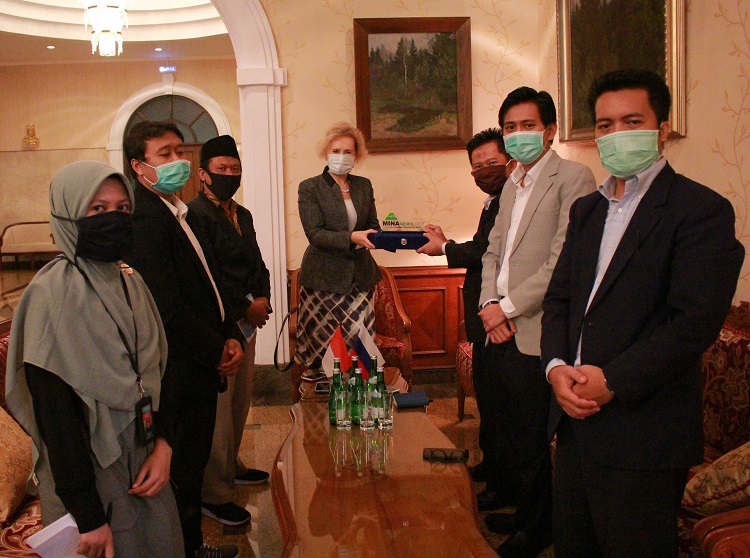


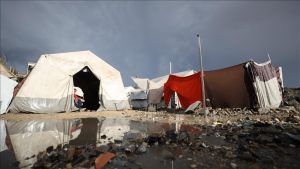
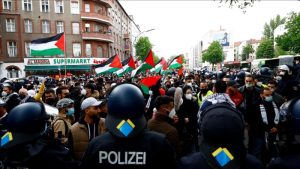
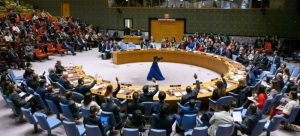
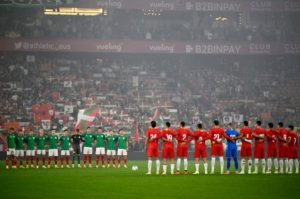
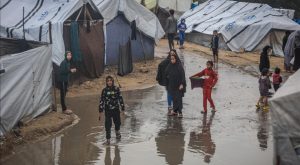

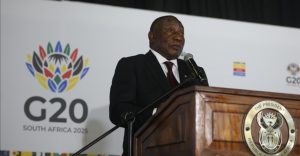
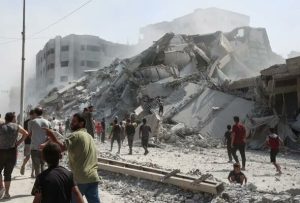
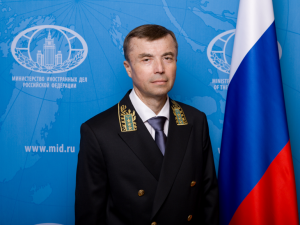
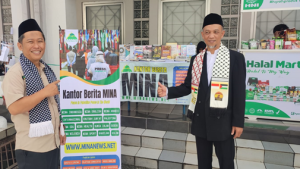
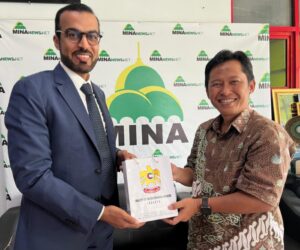
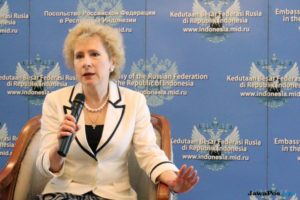








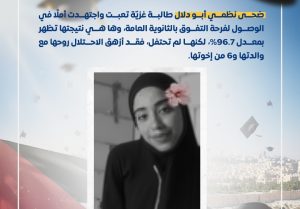
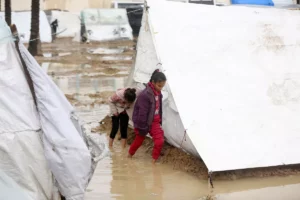




 Mina Indonesia
Mina Indonesia Mina Arabic
Mina Arabic